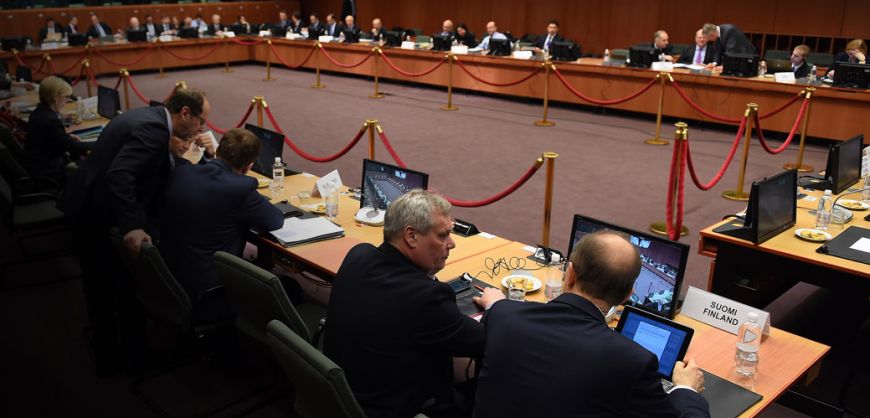Finance Minsiter Yanis Varoufakis and his delegation do not expect an agreement at the Eurogroup meeting of April 24 or at any time before the May 11 meeting of Eurozone finance ministers. For this reason, the government needs to serve its own finance needs until mid-May and possibly later. An estimated 2.5 bln euros for wages and pensions are needed, another 1 bln euros to pay back the International Monetary Fund (IMF) and even more money is needed for payments to state-sector suppliers, returns to taxpayers, etc.
Varoufakis stressed that the government’s priority is not paying back its debt to its international creditors at any cost amid speculation that the Radical Left Coalition (SYRIZA) is buckling under pressure. “There will be an agreement, there will be stabilization, European agreements come to fruition at the right time,” he said.
Four thorns to negotiations
The meeting with the Brussels Group continued until late on Tuesday night in Paris. Meetings will continue via a teleconference with the Euroworking Group on Wednesday afternoon, whereas Varoufakis is heading to Riga today for meetings ahead of Friday’s Eurogroup.
Varoufakis said that there are four areas that need to be addressed so that a solution can be found for Greece:
1) Labor
Greece’s international creditors, especially the International Monetary Fund (IMF), are calling for a full deregulation of labor relations. There is resistance for this bearing in mind that the economic crisis has flung Greek workers into the dark ages bearking in mind that thousands of workers are currently performing work without getting paid and the unemployment rate has exploded. The government has proposed new “smart” labor relations in the private sectors with contracts to be prepared by the International Labor Organization (ILO).
Proto Thema on Sunday exposed a plan where contracts can be formulated according to the situation in each employment sector and be linked to tax collection so that businesses are given incentives to recruit more people rather than dismiss.
2) Insurance
Both the government and Greece’s international creditors agree that the social security system is not viable. The difference is in how the problems plaguing social security are handled. The government wants to find ways of funding through privatizations that would reinforce the sector, but Greece’s creditors want painful pension cuts (e.g. dropping the 480-euro pensions to 320 euros per month) as well as cuts to other benfits.
3) Banks
The government does not believe that banks should burden public debt and wants funding from the ESFS to be used for the creation of a bad bank that would absorb red loans instead of resorting to a recapitalization of credit institutions.
4) Taxation
Despite recent convergence, there are still thorny issues concerning VAT that may continue until after May.
































